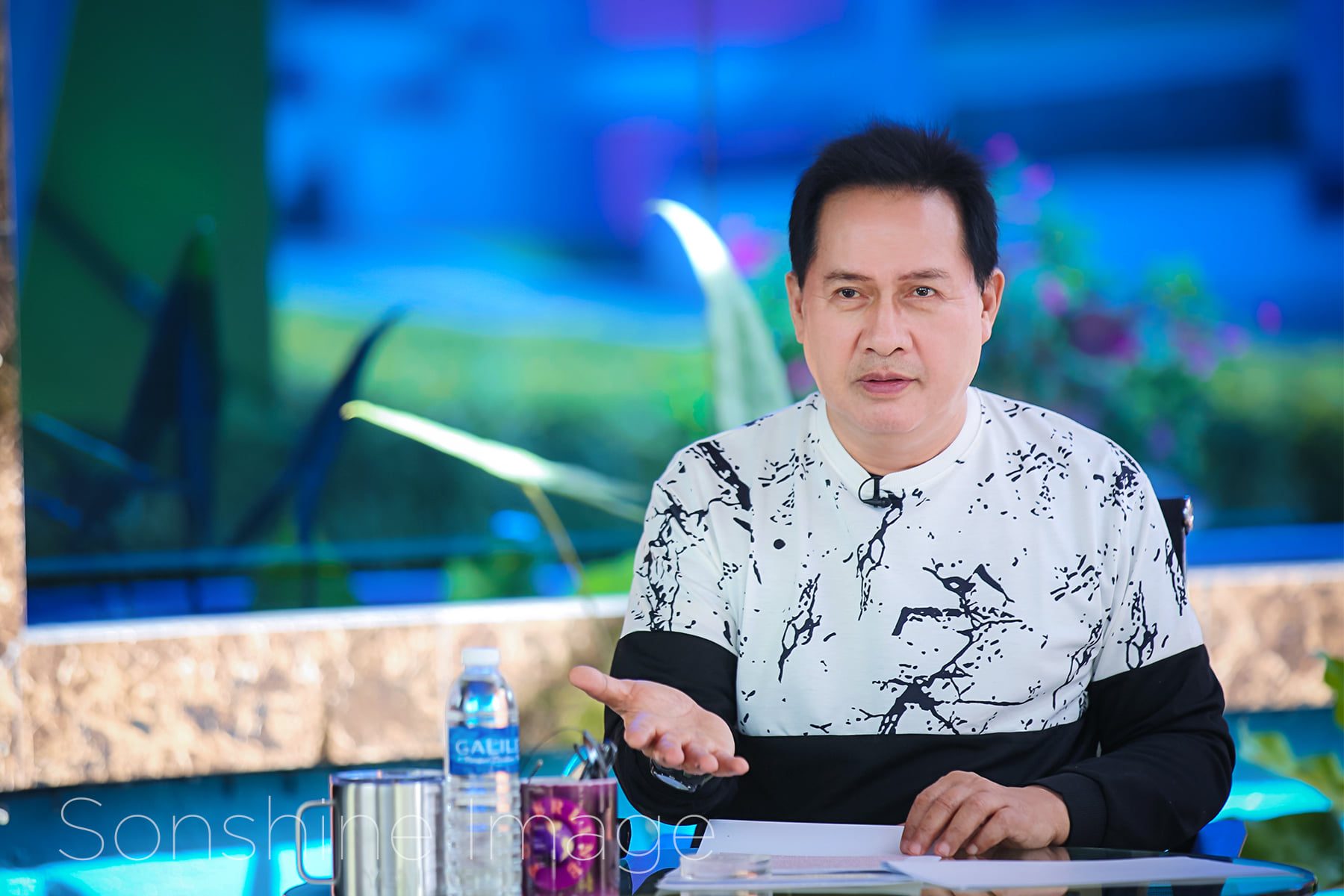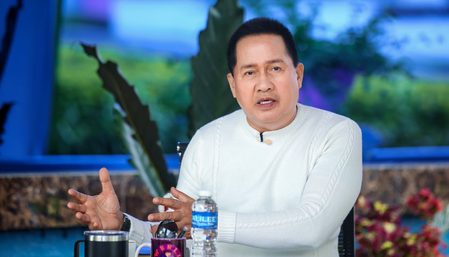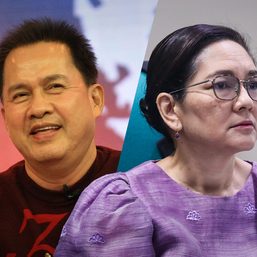SUMMARY
This is AI generated summarization, which may have errors. For context, always refer to the full article.

BAGUIO, Philippines – The Senate’s arrest order against embattled doomsday preacher Apollo Quiboloy still stands, as the Supreme Court (SC) is still in the process of deciding on Quiboloy’s petition against the order.
“Last April 3, 2024 on the Supreme Court’s agenda, the respondents [Senate] in this case were required to file a comment within 10 days on the petition as well as the prayer for the issuance of TRO and writ of preliminary injunction,” SC spokesperson Camille Sue Mae Ting told reporters on Wednesday, April 17.
“So right now we are awaiting the comments of the respondents,” she added.
Commenting is a procedural step and is a customary action in every SC petition. The comments, including Quiboloy’s earlier petition, will be analyzed by the High Court to determine its next action on the case. No TRO means that the Senate can still enforce its arrest order.
On March 22, Quiboloy’s camp sought the High Court’s help by filing a petition for certiorari, with the issuance of a TRO and/or preliminary injunction. Quiboloy sought to use the certiorari’s power – a remedy used to review a decision or grave abuse of discretion – to question the Senate’s arrest order against him.
The Senate order stemmed from the upper chamber’s inquiry into the alleged abuses committed by the doomsday preacher. The Senate issued an arrest order after Quiboloy was held in contempt for snubbing the summons of the Senate committee on women, children, family relations, and gender equality, chaired by opposition Senator Risa Hontiveros.
The same committee had heard the testimonies of former workers of his religious group, the Kingdom of Jesus Christ, on Quiboloy’s alleged abuses.
At this point, the Senate order is only one in the pool of pending arrest orders against Quiboloy.
Two Philippine courts, in Davao City and Pasig City, have ordered Quiboloy’s arrest. Although Quiboloy can post bail for his Davao City case for alleged sexual and child abuse, his Pasig City case for human trafficking is non-bailable.
Aside from local cases, Quiboloy is also wanted in the United States for sexual trafficking. He was indicted by a federal grand jury in a US District Court in Santa Ana, California in 2021, and landed on the US Federal Bureau of Investigation’s most wanted list.
What happens if all orders are implemented?
There is no hierarchy among the warrants against the doomsday preacher because the orders came from separate entities. The Senate’s warrant is different from the ones issued by the courts.
As of the moment, there are three warrants that can be enforced against Quiboloy. Whichever body will arrest Quiboloy first would have to coordinate with the others on the preacher’s custody.
Since the non-bailable offense is pending before the Pasig City court, it will likely have Quiboloy’s custody. Once this happens, the Davao City court and the Senate can ask the Pasig court to bring the preacher to them for hearings.
Quiboloy’s petition
In his petition before the High Tribunal, Quiboloy claimed that the Senate inquiry into his alleged abuses “are not motivated by any legislative purpose, but are driven by the main objective behind Senate Resolution No. 884, which is to impose upon themselves the power of prosecutorial bodies to judge and punish petitioner.”
Hontiveros filed Senate Resolution 884 on On December 23, 2023, directing the appropriate Senate panel to conduct an inquiry into allegations of large-scale human trafficking, rape, sexual abuse and violence, and child abuse of the KOJC under Quibiloy.
Hontiveros had said that the probe would allow lawmakers “to determine whether our updated human trafficking laws are able to cover large-scale and systemic acts of trafficking done under the cover of a religious organization.”
Prior to the Senate probe, Rappler had already reported about the alleged abuses commited by Quiboloy. (READ: Quiboloy sexually abused women, minors – ex-followers, US prosecutors)
The Constitution – the fundamental law of the land – empowers the Senate to conduct inquiries in aid of legislation. That is the legal basis for the Rules of the Senate, under which the upper chamber can summon witnesses and ask them to bring documents to the inquiry.
Quiboloy, in his SC petition, also argued that the Senate probe violates his rights against self-incrimination.
Retired senior associate justice Antonio Carpio had debunked Quiboloy’s claim about self-incrimination. According to Carpio, a person may only raise his/her right against self-incrimination and refuse an incrimination question, only after a question was asked during a Senate inquiry.
He added that before a question is asked by the Senate or its committees, “there is no constitutional right that may be violated.”
Every person is protected by laws to avoid incriminating himself/herself by giving information that can be used against himself/herself. This is enshrined in article III, section 17, of the 1987 Constitution: “No person shall be compelled to be a witness against himself.” – Rappler.com
Add a comment
How does this make you feel?














![[WATCH] Bamban POGO scandal: There’s a bigger fish than Alice Guo](https://www.rappler.com/tachyon/2024/07/inside-track-tcard-bamban-pogo.jpg?resize=257%2C257&crop=435px%2C0px%2C1080px%2C1080px)


There are no comments yet. Add your comment to start the conversation.